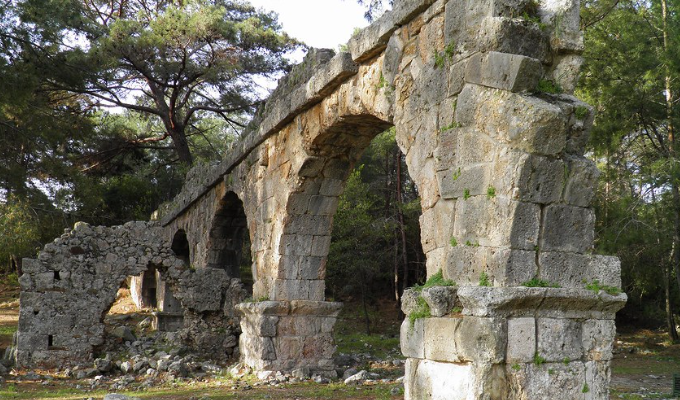The ancient Greek city of Phaselis on Turkey’s southern coast – a site of great archaeological importance – will implement a tourism management plan to tackle the issue of overcrowding.
The plan, which seeks to balance preserving the ancient city with allowing people to appreciate its history, was announced by culture and tourism minister Mehmet Nuri Ersoy just months after it was announced that the area would be transformed to better suit tourists.
The city was once a significant port in ancient Lycia, and plays host to many Greek and Roman relics. It can be found near to the town of Tekirova, in Antalya’s Kemer district, and draws in many local and international visitors.
This is what the Turkish government just last year were hoping to capitalize on, and made plans to build toilets, cafes and changing rooms in the area to make Phaselis more of a holiday destination.
This of course received lots of criticism from locals and heritage groups, who argued that an increase in tourist numbers would ultimately lead to the disruption of the very thing which draws visitors in the first place.
The huge tourism numbers there to marvel at the ruins in Phaselis actually disrupts ongoing excavations and may potentially violate heritage protection laws, including UNESCO regulations. At the time the Turkish government announced it wanted to build all the tourist facilities, many archaeologists raised concerns about a dangerous precedent being set for other culturally significant sites.
Just last year, the UNESCO World Heritage site of Cappadocia had a road built through it, which was done solely on the approval of the culture ministry, and not UNESCO itself.
The Plan to Control Tourism in Phaselis
To address the issue of adhering to UNESCO regulations, a plan is being worked on within the framework of the existing cultural heritage management strategy. Some of the measures may include designated parking areas removed from the site, making pedestrian access the primary entry method, and improved visitor facilities such as showers, toilets and changing rooms to ease the management of crowds and make visitors more comfortable.
Mainly though, the visitor management plan aims at finding a sustainable solution, making sure Phaselis is preserved while ensuring visitors can enjoy its rich cultural history.
The plan is particularly important because it not only works towards the protection of Phaselis from tourism, but helps the ancient city to keep its status as a UNESCO-recognized heritage site.
Turkey has begun to rely more and more on tourism in recent years, due to its uncertain currency and surging inflation. The government reportedly spent just 60,000 Turkish lira ($2,200) on researching the archaeology of Phaselis in 2022.



